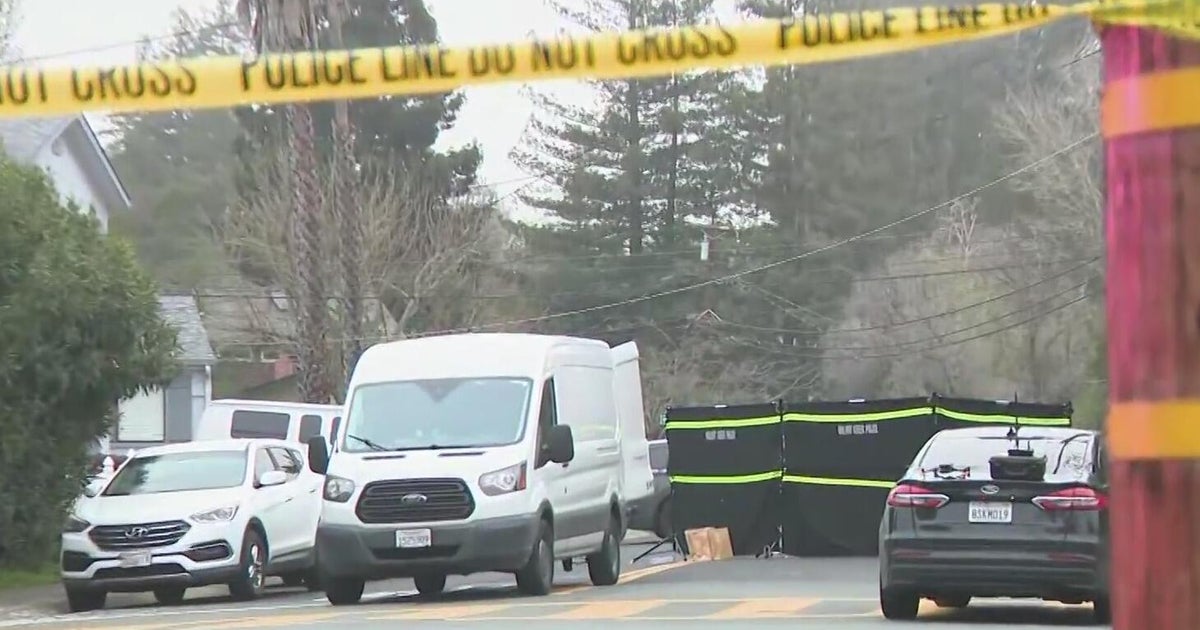Overdoses Overwhelm Medical Examiners & Coroners
Follow CBSDFW.COM: Facebook | Twitter
HARTFORD, Conn. (AP) - Soaring numbers of overdose deaths are adding to woes already plaguing medical examiner and coroner offices, resulting in a shortage of spots to store bodies and long delays in autopsies and toxicology testing.
The Connecticut medical examiner's office has considered renting a refrigerated truck to store extra bodies because its storage area has neared capacity at times. In Wisconsin, the Milwaukee County medical examiner's office sometimes has to put bodies on Army-style cots in its refrigerated storage area because it runs out of gurneys. The Hamilton County coroner's office in Cincinnati has a 100-day backlog of DNA testing for police drug investigations, largely because of increased overdose deaths.
Medical examiners and coroners say overdose deaths are adding to a strain on their offices that already includes a surge of urban violence, inadequate facilities, budget problems and the shortage of forensic pathologists qualified to perform autopsies.
"There are many, many parts of the country that have substantial problems," said Dr. David Fowler, Maryland's chief medical examiner and president of the National Association of Medical Examiners, referring to medical examiner and coroner offices. "I think the drug overdoses have substantially increased the problems."
A record 47,055 people died from drug overdoses in the U.S. in 2014, according to the latest figures from the federal Centers for Disease Control and Prevention. The number was up 7 percent from 2013, spurred by large increases in heroin and opioid painkiller deaths. Reports indicate overdoses continue to increase.
There are about 500 forensic pathologists in the country, but at least 1,000 are needed, according to forensic science groups. A major cause of the shortage is that many medical students are opting for higher-paying jobs in regular pathology jobs in hospitals, Fowler said.
Medical examiner and coroner offices generally investigate all violent deaths in their jurisdictions, as well as suspicious and unexpected deaths that don't occur in hospitals. The most notable changes resulting from inundated offices have been longer waits for families to learn how their loved ones died and delays in criminal investigations and court cases, medical examiners say.
Kathleen Errico, of Haverhill, Massachusetts, lost her daughter, Kelsey Grace Endicott, to a suspected heroin overdose in April. Kelsey was 23 and left behind a toddler son. Errico said authorities told her the backlog at the state medical examiner's office was so large it would take four to six months to complete a toxicology report.
"It's lousy for the families," Errico said of waiting for test results. "I know some other folks that are very, very angry. They're very upset about the wait. ... But I don't really see what more you can do with so many overdoses happening so quickly."
Errico said she's more patient than other relatives of overdose victims. But she still is eager to know whether Kelsey died of a straight heroin overdose or whether fentanyl — a powerful painkiller linked to a spike in overdoses across the country — was involved.
Some medical examiner and coroner offices, including Connecticut's, are so overworked that they risk losing accreditation, because their pathologists are on track to perform more than 325 autopsies a year — the limit in standards set by the National Association of Medical Examiners' accrediting program.
At the Hamilton County Coroner's Office in Cincinnati, the four forensic pathologists are on pace to do many more autopsies than the 325 limit, and the agency faces the loss of its accreditation, said the coroner, Dr. Lakshmi Sammarco.
In Los Angeles County, which has also seen a surge in fatal overdoses linked to fentanyl, Medical Examiner-Coroner Mark Fajardo announced in March that he was resigning, saying understaffing left him unable to do the job amid complaints of stacked bodies and testing backlogs.
Dr. James Gill, Connecticut's chief medical examiner, said he and his staff are looking into renting a refrigerated truck to store bodies in case they run out of space at the office.
Because of all the extra work, Gill also has decided his office also will no longer perform toxicology tests for most deaths clearly caused by trauma including shootings and car crashes, leaving the expense to police departments and families if they want the tests.
In Milwaukee County from 2011 to 2015, drug deaths increased 41 percent to 254, including 110 heroin-related deaths. About 14 percent of autopsies were related to overdose deaths in 2011, compared with 26 percent last year, said Dr. Brian Peterson, the county's chief medical examiner.
The office also is dealing with a 1 percent budget cut and has had to leave a toxicologist position unfilled.
The White House's National Science and Technology Council has been looking into how to improve the nation's coroner and medical examiner system. A draft report released in April includes recommendations to increase investments in training pathologists and better report death investigation data needed to inform lawmakers and monitor public health.
(© Copyright 2016 The Associated Press. All Rights Reserved. This material may not be published, broadcast, rewritten or redistributed.)







